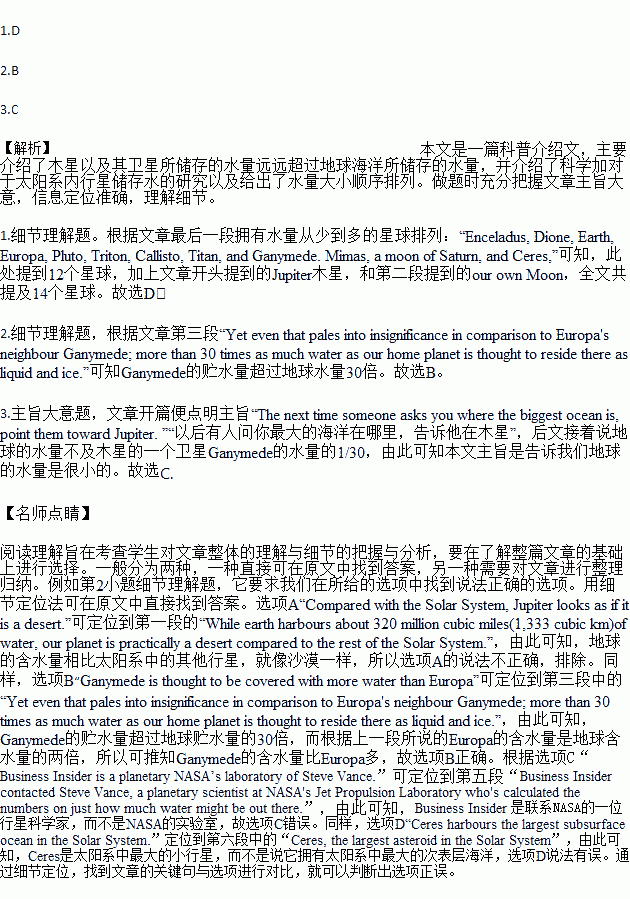题目内容
The next time someone asks you where the biggest ocean is, point them toward Jupiter. While earth harbours about 320 million cubic miles(1,333 cubic km)of water, our planet is practically a desert compared to the rest of the Solar System.
A moon of Jupiter called Europa, for example, which is roughly the size of our own Moon, likely hides a subsurface ocean with more than twice as much water as there is on Earth.
Yet even that pales into insignificance in comparison to Europa's neighbour Ganymede; more than 30 times as much water as our home planet is thought to reside there as liquid and ice.
And scientists keep finding more water wherever they look. On September 28, researchers reported that Dione — a small moon of Saturn — probably has a subsurface ocean, too.
To see just how Earth stacks up against other ocean worlds, Business Insider contacted Steve Vance, a planetary scientist at NASA's Jet Propulsion Laboratory who's calculated the numbers on just how much water might be out there.
In order of how much water they have, from the least to the most, they are: Enceladus, Dione, Earth, Europa, Pluto, Triton, Callisto, Titan, and Ganymede. Mimas, a moon of Saturn, and Ceres, the largest asteroid in the Solar System, are also thought to have subsurface oceans —but scientists aren't yet sure how big each one might be.
1.How many stars are mentioned in this passage?
A. Eleven. B. Twelve.
C. Thirteen. D. Fourteen.
2.What can we know according to the passage?
A. Compared with the Solar System, Jupiter looks as if it is a desert.
B. Ganymede is thought to be covered with more water than Europa.
C. Business Insider is a planetary NASA’s laboratory of Steve Vance.
D. Ceres harbours the largest subsurface ocean in the Solar System.
3.What does the passage mainly tell us?
A. The order of how much water the stars have has been figured out.
B. Scientists keep exploring more water in the universe wherever they look.
C. These ocean worlds reveal just how little water we have on Earth.
D. NASA’s planetary scientists are calculating the water numbers in the sky.
 优秀生应用题卡口算天天练系列答案
优秀生应用题卡口算天天练系列答案 浙江之星课时优化作业系列答案
浙江之星课时优化作业系列答案
